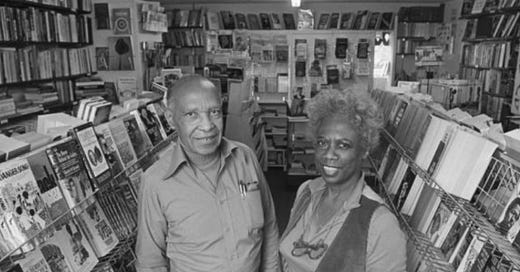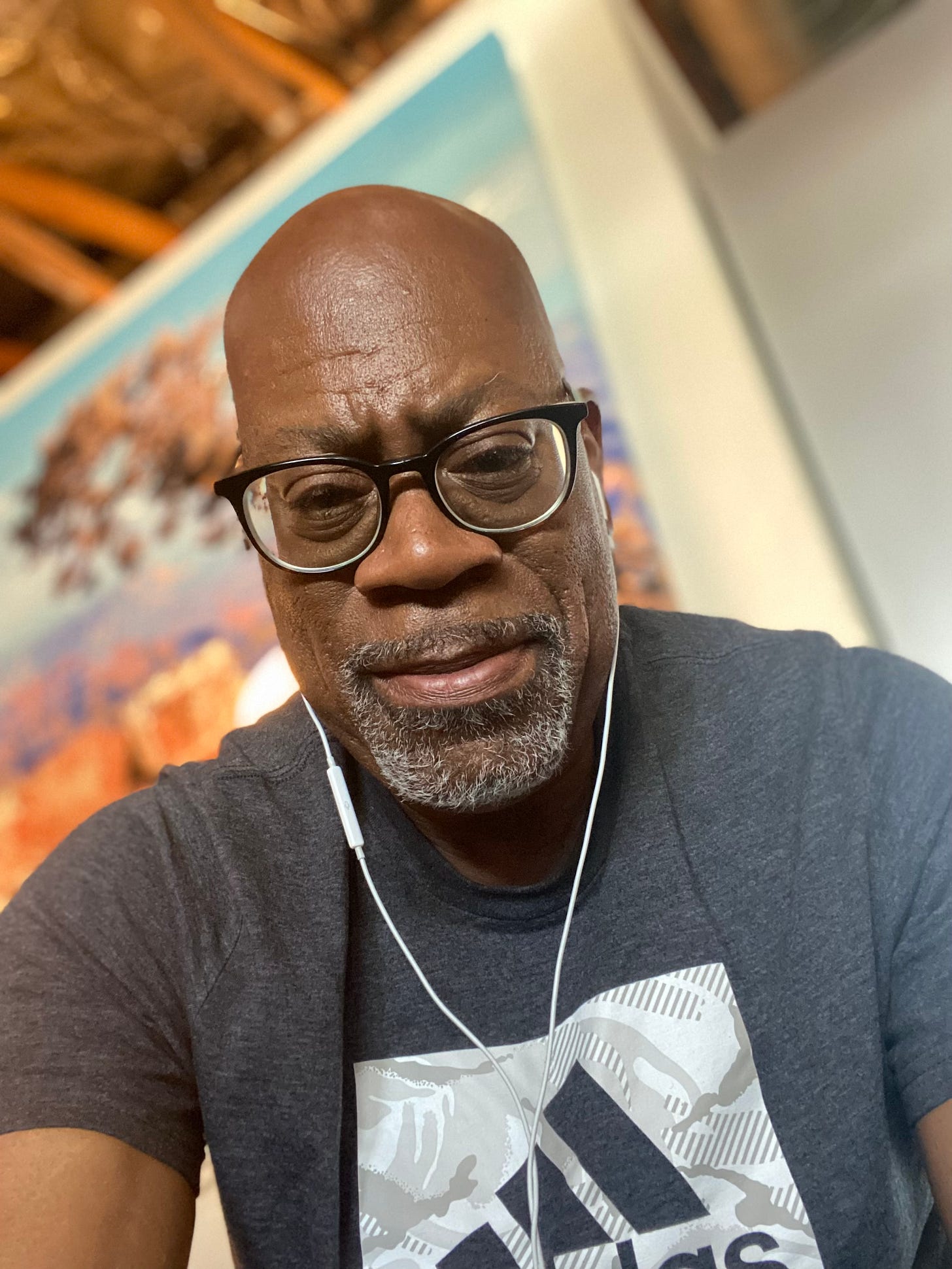Alfred Ligon is a name rarely heard in the annals of Black History. Yet the role he played as founder of Aquarian Bookshop and Spiritual Center in Los Angeles, once the nation’s oldest continuously operated black-owned bookstore in America, holds great significance.
Born in Atlanta in 1906, Ligon as a youth moved to Chicago, where he worked as a ballroom dancing instructor and printer's apprentice. Then in 1936, he relocated to Los Angeles to study metaphysics. Later he went to work as a waiter on the Southern Pacific Railroad.
Ligon (pronounced luh-GAHN) opened the Aquarian Bookshop in 1941 with $100 saved from his railroad salary. He came up with the store’s name from the title of a 1907 book, ''The Aquarian Gospel of Jesus Christ.'' In it author Levi Dowling opines that Christ spent time traveling and learning in Tibet, Egypt, Persia and Greece.
For the store’s launch, Ligon and his sister Jennifer LeGon, a former Metro-Goldwyn-Mayer film studio dancer, purchased a smattering of fiction, nonfiction and metaphysical books with the previously mentioned personal savings.
In the store’s early years Ligon watched sales ebb and flow with the evolution of Black History in America. Despite the fact that the Los Angeles Black population was less than 5% at the time, the store was ahead of its time in highlighting writers of color and Black cultural development.
Non-fiction and metaphysics books from a second hand store in downtown L.A. were staples at Aquarian. There was also a robust selection of works by Harlem Renaissance luminaries that included Langston Hughes as well as other authors such as Alex Haley and Maya Angelou.
Ligon, who ran the shop with his wife, Bernice, who he married in 1948, also provided access to certain historic documents housed at the store to historical researchers. Included here were drafts of Marcus Garvey’s speeches along with a series of letters sent to W.E.B. DuBois.
The couple also made the decision to start a “Black Book of the Month Club,” to a mailing list that ballooned to 500 participants.
Aquarian Bookshop also accepted self-published books to introduce store patrons to new authors and ideas. Never one to part ways with titles that were slow to sell, Ligon reportedly allowed books to often linger on store shelves for months, sometimes years, until they found a buyer.
For those who were metaphysically inclined, a group of people that included Ligon (pronounced luh-GAHN), the store featured a wide selection of books about astrology, the occult, as well as tarot cards.
Noted memoirist, novelist, and civil rights activist Maya Angelou who first visited the store in 1955, once called The Aquarian “a beacon to West Coast blacks searching for enrichment.” She cited the Ligon’s thoughtful and courteous manner as one of the big reasons for the store’s popularity.
Over time, the store became an epicenter of cultural activity featuring lectures, classes on Black history, and small theatrical productions. In the 1960’s buoyed by the growth of Black Studies programs at a number of America’s colleges and universities, a new consumer market emerged for the store. During that same period there was a surge in interest in New Age books, fueling sales of the metaphysical works that the store had long championed.
Interest in Black History books began to wane in the 1970’s with the exception of Alex Haley’s popular Roots book release in 1976. And while the 1980’s saw a resurgence of Black works, The Aquarian began experiencing stiff competition from other bookstores with similar offerings.
Because of the waves of uncertainty facing the bookstore, Mr. Ligon, when featured in a 1982 interview with The Los Angeles Times in 1982 called running a bookstore “a starvation business,” while noting that “we're an institution. Even just a trickle of people who want these books justify our existence.''
In 1992 after four L.A. police officers were acquitted in the brutal beating of Rodney King, Mr. Ligon's store was burned to the ground by riots that raged in the South-Central area destroying over 7,000 books. It’s estimated that his uninsured losses were in excess of $300,000.
Ligon later said that it was his belief in metaphysics that helped ease his sorrow over the store’s loss, noting that the 1992 riots in his mind symbolized “a 500-year cosmic cycle, not as a personal tragedy.”
He later rebuilt his bookshop on another site through the support of donations from book clubs along with a consortium of independent bookstores. Most notably, Angelou and the poet Alice Walker were able to raise more than $70,000 for the store’s rebuilding on L.A. Adams Boulevard.
The store sadly was never able to regain its momentum leading to its closing in 1994 after Ligon’s wife Bernice was diagnosed with liver cancer. She died in 2000. he passed away two years later.
During its heyday, the Aquarian Bookshop was a place where the likes of Maya Angelou and Alex Haley read their works; Michael Jackson and his mother shopped; and everyone from Black parents to book collectors came to explore in search of rare finds. Today the store serves as a lasting legacy to the many Black bookstores that now dot America’s broad landscape.
Black Books, Black Minds” is a key foundation of my Great Books, Great Minds” passion project. For me, it’s a labor of love fueled by the endless hours of work I put into researching and writing these feature articles. My aim is to ignite a new world of community, connection, and belonging through the rich trove of Black History books, thought leaders, and authors we unearth.
So if you are enjoying this digital newsletter, find it valuable, and savor world-class book experience featuring non-fiction authors and book evangelists on Black History themes, then please consider becoming a paid member supporter at $6.00/month or $60.00/year. Your support will also help to support my Black Bookstore tour that is scheduled to re-launch in January of 2024.






Thank you for sharing this fascinating story. I love reading about the unheralded gatekeepers in our community who contribute to our beautiful cultural mosaic.